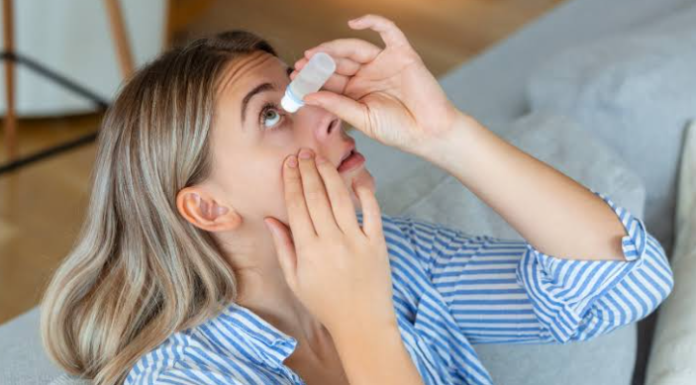The rise of “Waethicc” has created a buzz in the health and beauty industry. But what exactly is Waethicc, and why has it garnered so much attention? This article dives into the myths and facts surrounding Waethicc, its environmental impact, and how atmospheric conditions play a role in this phenomenon.
What is Waethicc?
Waethicc is a term that combines “weather” and “thick,” referring to environmental conditions that affect the thickness or density of the atmosphere. These conditions can influence various aspects of health and beauty, from skin hydration to hair texture. But is it all just hype, or is there science to back it up?
Understanding Waethicc starts with recognizing the complex interplay between atmospheric conditions and biological responses. The term encapsulates a range of environmental factors, including humidity, temperature, and air quality, that can impact our skin and hair. These elements can exacerbate or alleviate common issues like dryness, oiliness, frizz, and irritation.
Waethicc has become a focal point for beauty and health enthusiasts because it offers a holistic view of how our environment affects us. Instead of merely focusing on individual factors like UV exposure or pollution, Waethicc provides a broader perspective. This comprehensive approach is why it’s not just a fleeting trend but a growing area of interest supported by scientific research.
The Science Behind Waethicc
Atmospheric Conditions and Their Effects
Atmospheric conditions, including humidity, temperature, and air quality, can have significant effects on our skin and hair. High humidity, for example, can make hair frizzy and cause skin to feel sticky. Conversely, low humidity can dry out the skin and make hair brittle.
Temperature fluctuations also play a critical role. Extreme heat can lead to excessive sweating, which can clog pores and cause breakouts. On the other hand, cold weather can strip the skin of its natural oils, leading to dryness and irritation. Air quality, including pollutants and allergens, can further complicate these issues by causing inflammation and allergic reactions.
How Waethicc Affects Skin Health
Waethicc conditions can lead to various skin issues, such as dryness, acne, and premature aging. Humid environments can cause pores to become clogged with sweat and oil, leading to breakouts. On the other hand, dry conditions can strip the skin of its natural moisture, leading to flakiness and irritation.
Moreover, air quality significantly impacts skin health. Pollutants like particulate matter and ozone can penetrate the skin barrier, causing oxidative stress and inflammation. This not only accelerates the aging process but can also exacerbate conditions like eczema and rosacea. Understanding these factors can help in developing a more effective skincare routine tailored to the specific Waethicc conditions one is experiencing.
Environmental Impact of Waethicc
Climate Change and Waethicc
Climate change has led to more extreme weather conditions, contributing to the rise of Waethicc. Increased temperatures and altered precipitation patterns can exacerbate the effects of Waethicc on the environment and human health.
These changes in climate can lead to prolonged periods of extreme humidity or dryness, making it challenging to maintain skin and hair health. For instance, heatwaves can increase the risk of heat-related illnesses and skin conditions, while prolonged cold spells can lead to issues like chapping and frostbite. As climate change continues to alter our environment, understanding Waethicc becomes increasingly crucial.
Pollution and Air Quality
Pollution plays a significant role in Waethicc conditions. Poor air quality can lead to skin problems such as eczema and psoriasis. Pollutants like particulate matter and ozone can penetrate the skin barrier, causing inflammation and accelerating aging.
Airborne pollutants can also lead to respiratory issues, which indirectly affect skin health by reducing oxygen supply to skin cells. This can result in a dull complexion and slower healing processes. Moreover, pollutants can weaken the skin’s natural defenses, making it more susceptible to infections and other issues. Therefore, managing air quality is a crucial aspect of dealing with Waethicc conditions.
Myths Surrounding Waethicc
Myth: Waethicc is Just a Marketing Gimmick
One common myth is that Waethicc is merely a marketing term created to sell more beauty products. While it’s true that some brands may exploit the term, scientific evidence supports the idea that atmospheric conditions can significantly impact skin and hair health.
Research has shown that humidity, temperature, and air quality can all influence the condition of our skin and hair. These factors are not just marketing ploys but real elements that require attention for maintaining optimal health and beauty. Dismissing Waethicc as a gimmick overlooks the genuine scientific basis that underscores its importance.
Myth: All Waethicc Conditions Are Harmful
Not all Waethicc conditions are detrimental. Moderate humidity levels can help maintain skin hydration and elasticity. The key is to find a balance that suits your specific skin and hair needs.
In fact, certain Waethicc conditions can be beneficial. For example, moderate humidity can improve skin barrier function and increase hydration levels. Similarly, cooler temperatures can reduce inflammation and puffiness. Understanding the nuances of Waethicc can help individuals make more informed decisions about their skincare and haircare routines.
Practical Tips for Managing Waethicc Conditions
Skincare Tips
- Hydration: Use a good moisturizer to maintain skin hydration, especially in dry conditions.
- Sun Protection: Always use sunscreen to protect your skin from UV rays, which can be more intense in certain Waethicc conditions.
- Cleansing: Regularly cleanse your skin to remove pollutants and excess oil.
- Antioxidants: Incorporate antioxidants into your skincare routine to combat oxidative stress caused by pollutants.
- Humidifiers: Use a humidifier in dry conditions to maintain skin moisture levels.
- Barrier Creams: Use barrier creams to protect the skin from harsh environmental conditions.
Haircare Tips
- Conditioning: Use a deep conditioner to combat dryness caused by low humidity.
- Anti-Frizz Products: Use products designed to reduce frizz in high-humidity conditions.
- Protective Styles: Consider protective hairstyles to minimize damage from environmental stressors.
- Scalp Care: Pay attention to scalp health by using treatments that address dryness or oiliness.
- Heat Protection: Use heat protectants to shield hair from damage caused by hot weather or styling tools.
- Regular Trims: Regularly trim your hair to prevent split ends and maintain overall hair health.
The Role of Technology in Combating Waethicc
Air Purifiers and Humidifiers
Modern technology offers solutions to mitigate the effects of Waethicc. Air purifiers can help improve indoor air quality, reducing the impact of pollutants on your skin. Humidifiers can maintain optimal humidity levels, preventing dryness.
Advanced air purifiers can filter out a wide range of pollutants, including particulate matter, allergens, and volatile organic compounds (VOCs). This can significantly improve indoor air quality, making it easier to manage skin and respiratory health. Similarly, smart humidifiers can adjust humidity levels based on real-time data, ensuring a consistent and comfortable indoor environment.
Smart Skincare Devices
Smart skincare devices that monitor environmental conditions and adjust their functions accordingly are becoming increasingly popular. These devices can help you maintain a skincare routine tailored to current Waethicc conditions.
These gadgets often come with sensors that measure humidity, temperature, and air quality, providing personalized recommendations for skincare products and routines. Some even offer features like UV monitoring and hydration level tracking. By integrating these technologies into your daily routine, you can better navigate the challenges posed by varying Waethicc conditions.
Real-Life Examples
Case Study: Urban vs. Rural Areas
People living in urban areas often experience different Waethicc conditions compared to those in rural areas. Urban areas typically have higher pollution levels, leading to more significant skin and hair issues. Conversely, rural areas may have cleaner air but can suffer from extreme temperature variations.
Urban dwellers may face challenges like increased exposure to pollutants and UV radiation, which can exacerbate skin aging and other issues. On the other hand, rural residents might deal with more significant humidity and temperature fluctuations, impacting skin and hair health differently. Understanding these regional differences can help in tailoring specific strategies to manage Waethicc conditions effectively.
Testimonials
Individuals who have adapted their skincare and haircare routines to accommodate Waethicc conditions often report noticeable improvements. For example, using air purifiers and humidifiers has helped many people maintain healthier skin and hair.
Testimonials from users highlight the importance of being proactive in managing environmental conditions. Many have found that simple adjustments, like incorporating anti-pollution skincare products or using smart devices, can make a significant difference. These real-life examples underscore the practical benefits of understanding and adapting to Waethicc conditions.
Conclusion
Waethicc is more than just a buzzword; it’s a real phenomenon backed by scientific evidence. By understanding the myths and facts surrounding Waethicc, we can better manage its effects on our health and beauty. Whether it’s through practical skincare tips, advanced technology, or simply being more aware of atmospheric conditions, we have the tools to navigate the complexities of Waethicc.
Understanding Waethicc and its implications helps us make informed decisions about our skincare and haircare routines. As climate change continues to alter our environment, staying informed and adaptable will be crucial in maintaining our health and beauty. By adopting a proactive approach, we can mitigate the adverse effects of Waethicc and enjoy healthier, more resilient skin and hair.
Read Also-: Fitosterina: The Key to Better Health and Wellness










